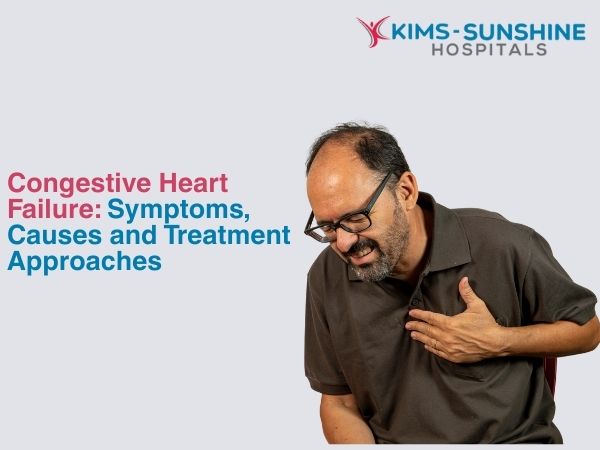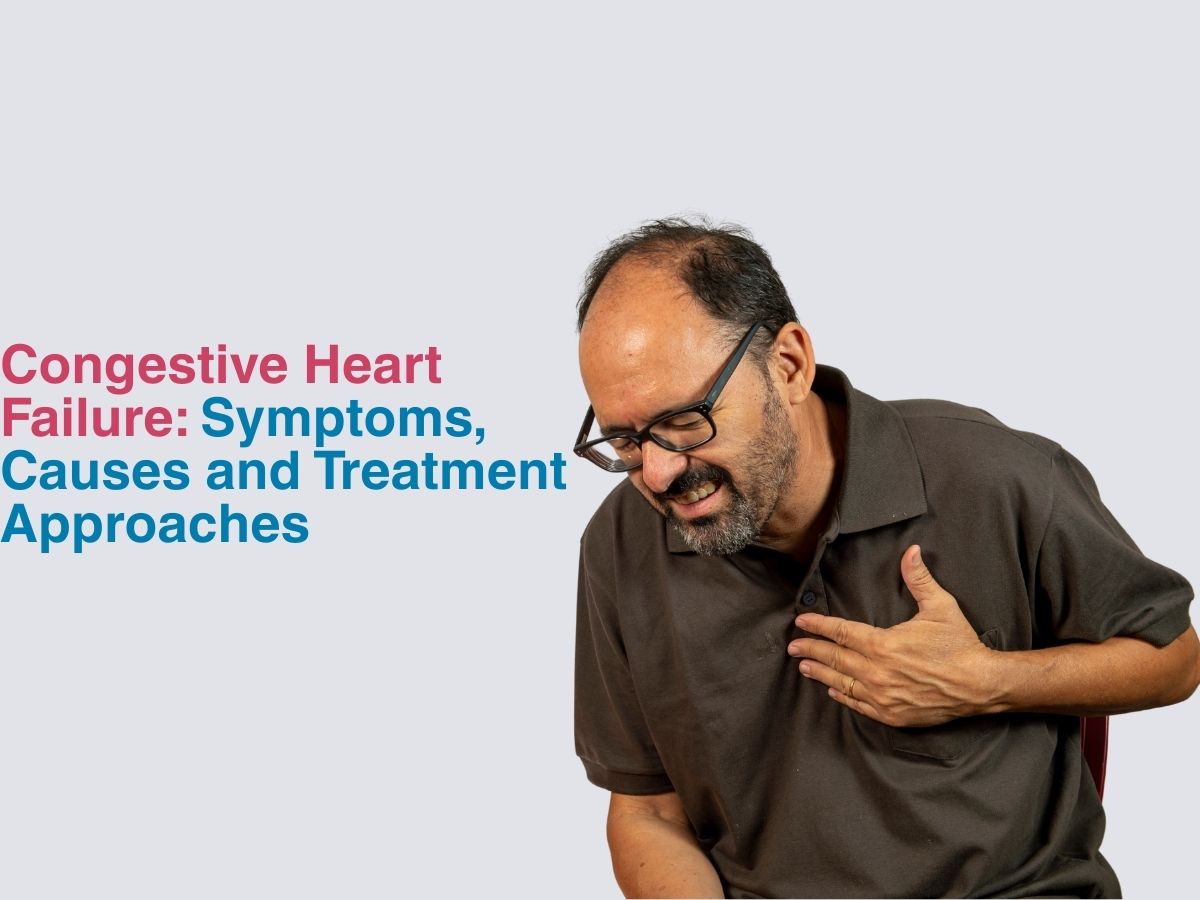
Congestive Heart Failure: Symptoms, Causes and Treatment Approaches
Causes Of Congestive Heart Failure In Adults
Your heart is more than just a pump. It sets the body’s rhythm for every cell. When this rhythm falters and the pump weakens, the body begins to struggle and that is where Congestive Heart Failure, or CHF, steps in. But what triggers this change? It often begins with underlying conditions that stretch or stiffen the heart muscle. The biggest culprits include:
- Coronary artery disease: When the highways of the heart narrow due to cholesterol, the muscle receives less oxygen and its performance dips.
- High blood pressure (hypertension): Like forcing too much water through a narrow pipe, high pressure wears the heart down over time.
- Heart valve issues: Think of them as doors in the heart that won’t open or shut properly, making each beat less efficient.
- Diabetes: Over time, high blood sugar quietly erodes blood vessels and heart function.
- Lifestyle factors such as obesity, smoking, alcohol overuse and poorly managed stress can tip the scale further, making the heart’s job a daily uphill climb.
How To Diagnose Congestive Heart Failure
A good doctor doesn’t just listen to your words. They listen to your breath, your heartbeat, and even the swelling in your ankles. Diagnosing CHF involves a mix of keen observation and clever technology.
- Clinical examination: Swollen legs, neck vein distension, crackles in the lungs, or a rapid heart rate can all ring alarm bells.
- Echocardiogram (echo): This is the heart’s selfie in motion. It reveals how well your heart chambers are pumping and whether the valves are functioning properly.
- Electrocardiogram (ECG): The squiggly lines might seem abstract, but they can speak volumes about rhythm disturbances or past damage.
Early diagnosis is crucial. When caught in time, CHF isn’t a full stop. It’s just a comma and can double as a respectful pause to reset and redirect the course of the organ and your health in the long term.
Treatment For Congestive Heart Failure Without Surgery
Contrary to what many believe, not every heart needs a scalpel to heal. Much of CHF care is rooted in medical management and lifestyle adjustments that give the heart a fighting chance.
- Diuretics : They help flush out the extra fluid. Your ankles breathe easier, your lungs feel lighter.
- ACE inhibitors and ARBs: These relax blood vessels and ease the heart’s workload. A bit like widening the roads during rush hour.
- SGLT2 inhibitors: Originally for diabetes, they’re now showing promise in heart failure too.
- In some cases, devices like pacemakers or defibrillators are offered to stabilize the rhythm. But even without surgery, a well-managed regimen can offer remarkable improvements.
Congestive Heart Failure Vs Heart Failure
Are they different? Or just two names for the same storm? In truth, congestive heart failure is a type of heart failure, one where fluid build-up becomes a defining feature. All congestive heart failure is heart failure, but not all heart failure is congestive.
Heart Failure is the umbrella term. It simply means the heart isn’t pumping as efficiently as it should. Congestive Heart Failure refers to heart failure that comes with a side dish of congestion. The fluids get backed up into your lungs or limbs, leading to puffiness, breathlessness, or a bloated belly.
Conclusion
When the heart begins to falter, it doesn’t always scream. A little fatigue, a bit of swelling or a short, painful breath while climbing stairs- these small signs often carry big meaning. But the story of CHF isn’t only about decline. It’s also about resilience. About how small changes in daily habits – like walking a little more, salting your food a little less, managing stress better, can slowly restore rhythm to a faltering beat. Manage stress through yoga, meditation, or laughing with friends because your heart needs peace, too. Not just your mind alone!







